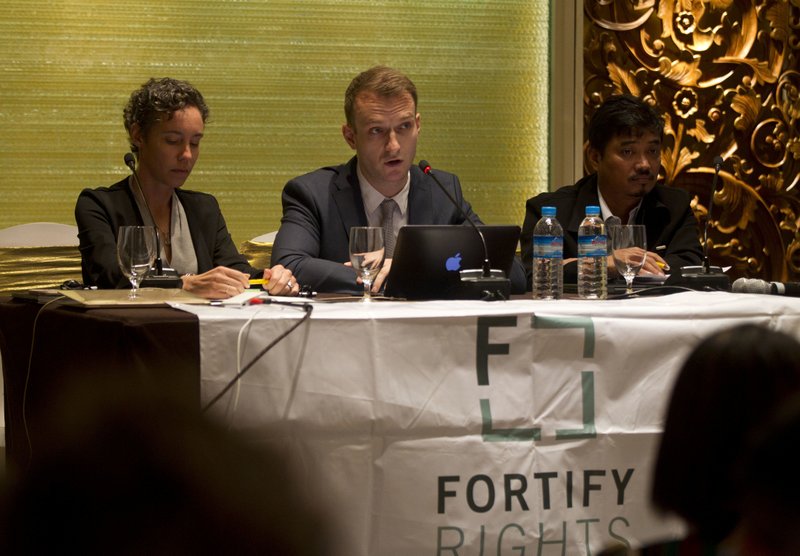RANGOON, Burma -- Burma has deliberately obstructed aid deliveries to civilians in war-torn Kachin and northern Shan states, actions that may amount to war crimes, a human rights group said Thursday.
Re-ignited fighting between Burma's military and an armed Kachin rebel group has killed thousands of civilians and displaced more than 100,000 people since 2011. The Kachin Independence Army is one of several ethnic rebel groups the military has been battling since Burma's independence from Britain 70 years ago.
Thousands of people have been forced to leave their homes since a new offensive began in April that has renewed concerns Burma's army is creating a humanitarian crisis in Kachin similar to the one caused by its violence against Rohingya Muslims in the western state of Rakhine.
Human rights group Fortify Rights said civilians displaced by the Kachin violence have suffered "increased food insecurity, avoidable health-related deaths, poor living conditions and protection concerns" due to the lack of essential aid.
"Consecutive governments and the military have willfully obstructed local and international aid groups, denying Kachin civilians access to aid," Fortify Rights chief executive Matthew Smith said in a statement accompanying the group's report. "This may amount to a war crime, giving even more reason for the U.N. Security Council to refer Myanmar to the International Criminal Court."
Burma is often called Myanmar, a name that military authorities adopted in 1989. Some nations, such as the United States and Britain, have refused to adopt the name change.
"There is no food for people on the border," said Zau Raw, who is displaced in an area controlled by the rebels. He told the human rights group that he witnessed Burmese soldiers take money from aid trucks and then block their deliveries. "They block everything. All trucks that are trying to cross into KIA-controlled areas are blocked."
Fortify Rights said Burmese authorities should allow access for local and international aid groups to deliver relief.
The United States in mid-August intensified its sanctions against Burma, blacklisting four commanders and two units of security forces for their alleged role in violent campaigns against ethnic minorities including Rohingya Muslims and the Kachin, who are largely Christian.
A United Nations investigating team reported earlier this week that Burma's top generals should face prosecution for crimes against humanity and war crimes in Kachin, Rakhine and Shan states. The investigators said Burma authorities "frequently and arbitrarily denied" humanitarian aid to civilians in Kachin.
Government spokesman Zaw Htay said earlier this week that the government did not accept the U.N. team's findings. Calls to Zaw Htay to seek comment on the Fortify Rights report were not answered Thursday.
A Section on 08/31/2018

